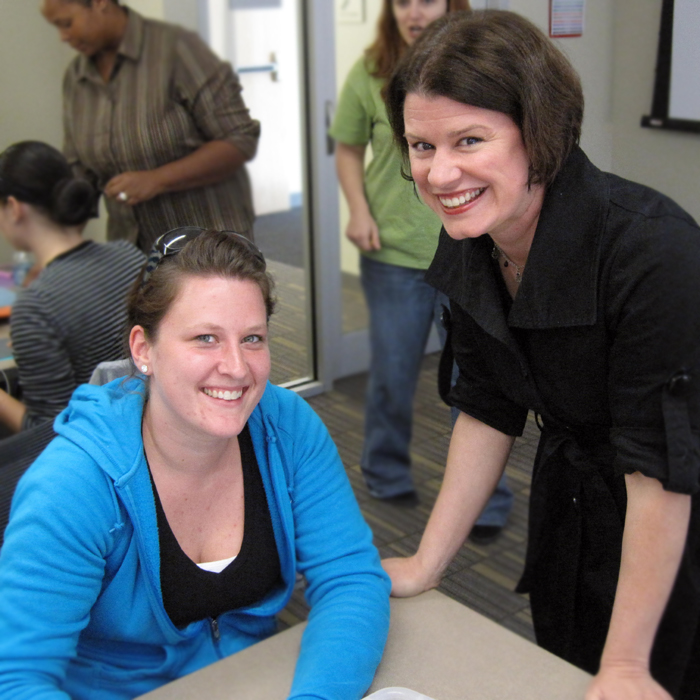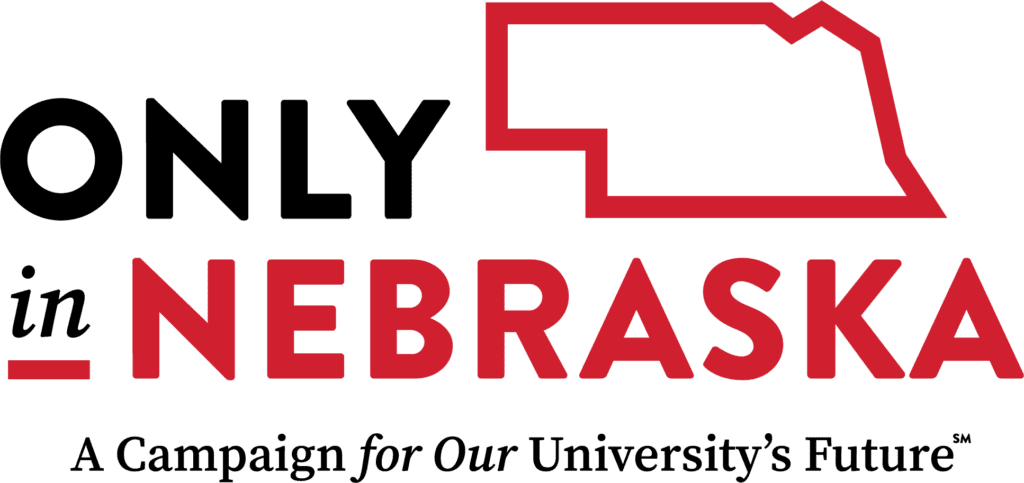Early childhood professor learned shared experiences aren’t always shared


A little girl was crying.
A young preschool teacher was comforting her. But then a little boy raced across the room and jumped on the teacher’s back.
He tried to wrestle her to the ground. His name was Seth, and Seth thought the teacher was the reason the little girl was crying.
Over the years she spent with Seth, the young teacher noticed a pattern in his stories. They always were filled with high drama. Explosions. People getting killed. Someone crying.
One day, she finally asked him why he’s always fighting in his stories.
Seth looked at her as if she were the dumbest person on the planet.
“Miss Debora,” he said. “We’re not fighting. We’re saving.”
The preschool teacher was Debora Wisneski, the first Langan Professor of Early Childhood Education at UNO, and that’s a story she likes to tell her college students.
“That lesson Seth taught me has stayed with me a long time,” she says. “That ‘a-ha’ moment was that I should not assume that just because I’ve had a shared experience with someone, that we would have the same understanding of what was happening there.
“And I’ve taken that with me throughout my career.”
Wisneski, past president of the Association for Childhood Education International, came to UNO from the University of Wisconsin-Milwaukee a year ago. She’s yet another example of how private money raised during the Campaign for Nebraska has lured the best and brightest faculty members to the University of Nebraska.
“Someone sent me a link to the Campaign for Nebraska website,” she says. “It said a lot to me that a whole state and a university system would choose Early Childhood as a priority – right up there against Water for Food and Cancer Research.
“That intrigued me.”
And she came to UNO, she says, because she wanted to be part of something special that’s growing at the University of Nebraska that will someday become a national leader in early childhood issues – the Buffett Early Childhood Institute.
The Institute is unique, she says, because it’s not just an individual, private nonprofit foundation that’s going out on its own. It’s actually a public institution that has promised to use all of its resources – not just its teacher educators – to work on the issues of developing a better world for children.
She’s excited to work with the institute’s first director, Sam Meisels, a legend in the field. One of UNO’s first collaborations with the Buffett Institute will happen in November when UNO and the Buffett Institute are co-sponsoring a conference in Omaha for educators from around the area to learn about the importance of play and about using story acting in the classrooms.
Debora’s own story:
She was happy in Wisconsin. She and her husband had just renovated much of their house. She wasn’t looking to leave.
But she received a phone call one day from Nancy Edick, head of UNO’s College of Education, and then came for the interview.
Wisneski loved the camaraderie she saw among UNO’s professors, their expertise and their dedication to their work in the schools with children.
“These teacher-educators here at UNO are in the classrooms, in the community,” she says. “That is how I saw myself as well. Not just in the ivory tower.
“In a way, I’ve never left the preschool classroom.”
The professorship is named for John Langan, former dean of the College of Education who died three years ago. She wishes she could have met him.
“John touched so many lives,” she says. “From talking with his friends, I think my similarity with him is that we both believe we are here to serve children.”
She wants to help design programs that support the family and the community, she says, because that will support children. If the family is struggling and under stress, then that child is under stress.
The whole community – not just early childhood educators – must be involved in the discussion, she says.
The community of early childhood teachers must feel supported and stimulated, too.
“One of the things I’ve learned through years of working with teachers in the classroom is that it can feel awfully lonely sometimes – like you’re the only one struggling. Teaching young children is very physically, emotionally, and intellectually intense.”
Over the years, Wisneski collected stories from her classrooms. She wrote down what the children would tell her, and those stories became the crux of the curriculum.
Through writing down and studying these stories, she learned about each child’s development. And about herself.
Stories became Wisneski’s passion. Each child’s story. Seth’s story. (Seth said one day that when he got older and went to college and lived in a dorm, he would be the one to save the girls in the dorm from the robbers.)
Stories were how the children learned about each other. They helped create a community in the classroom.
“I saw the beginnings of democracy,” Wisneski says, “I saw the beginnings of debate.”
Seth learned a lesson, too.
He learned the little girls in the class had different perspective from his. They watched “The Powerpuff Girls” on TV. They saw themselves as tough, too.
And they told Seth they didn’t need to be saved.
Early Childhood Education is a top priority of the Campaign for Nebraska. So is Faculty Support – an endowed professorship is one of the strongest incentives the university has to recruit and retain star faculty like Debora Wisneski.
If you would like to help the Buffett Institute and Dr. Wisneski achieve their important goals – and make Nebraska the best place in the nation to be a child – please give online or contact the foundation at 800-432-3216.





